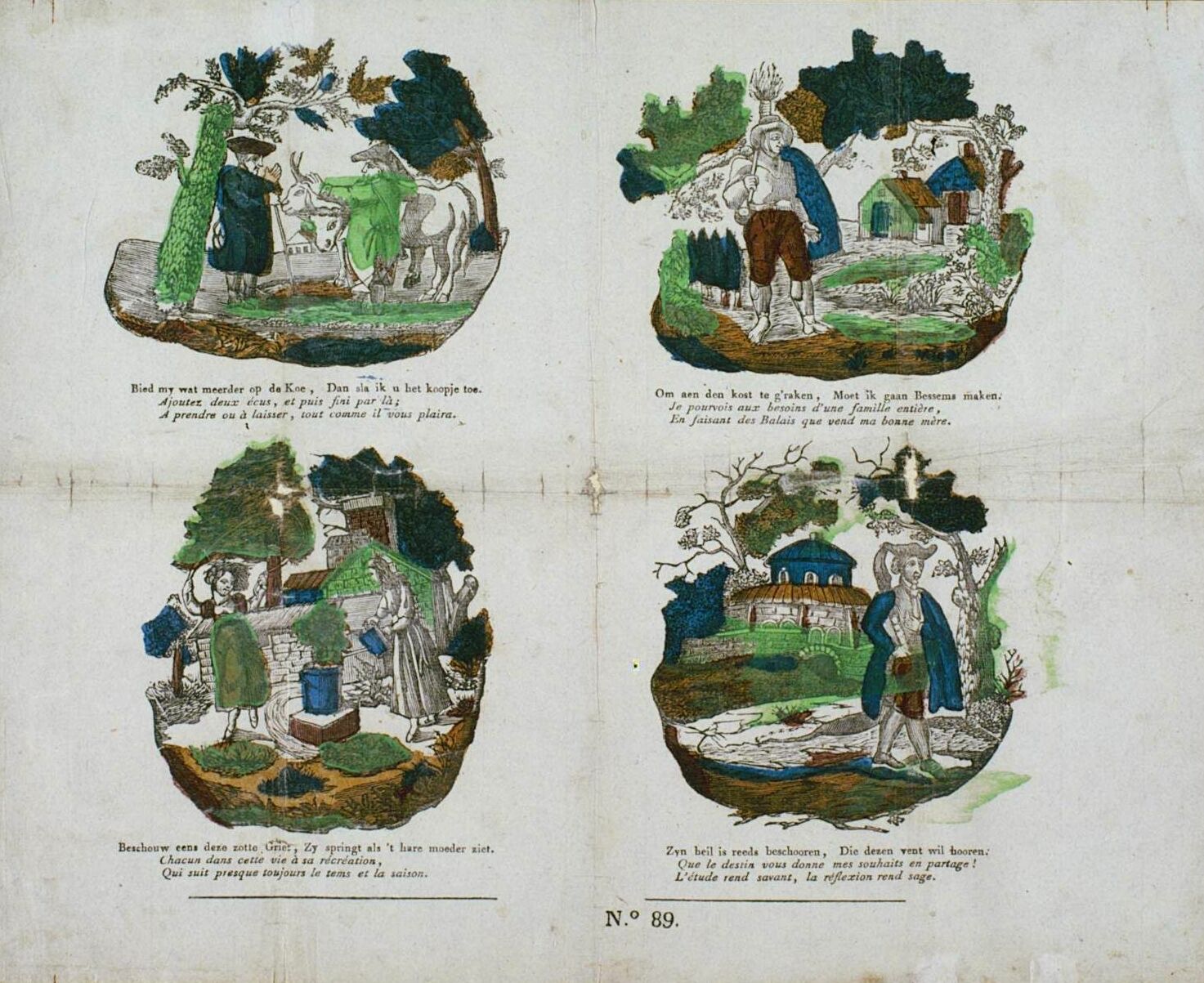|
John Lindow
John Frederick Lindow (born July 23, 1946) is an American philologist who is Professor Emeritus of Old Norse and Folklore at University of California, Berkeley. He is a well known authority on Old Norse religion and literature. Biography John Lindow was born in Washington, D.C. on July 23, 1946, the son of Wesley Lindow and Eleanor Niemetta. His father was a banker and his mother was a teacher. John Lindow received his undergraduate degree at Harvard University, where he gained a A.B. magna cum laude in 1968, and a PhD in 1972, both in Germanic Languages and Literatures. After gaining his Ph.D, Lindow joined the faculty at University of California, Berkeley, serving as Acting Assistant Professor (1972-1974), Assistant Professor (1974-1977), Associate Professor (1977-1983), and Professor of Scandinavian (1983-?). He was since retired as Professor Emeritus of Old Norse and Folklore. In 1977, Lindow was elected as a corresponding member of the Royal Gustavus Adolphus Academy. In ... [...More Info...] [...Related Items...] OR: [Wikipedia] [Google] [Baidu] |
Medieval Academy Of America
The Medieval Academy of America (MAA; spelled Mediaeval until c. 1980) is the largest organization in the United States promoting the field of medieval studies. It was founded in 1925 and is based in Cambridge, Massachusetts. The academy publishes the quarterly journal '' Speculum'', and awards prizes, grants, and fellowships such as the Haskins Medal, which is named for Charles Homer Haskins, one of the academy's founders and its second president. The academy supports research, publication and teaching in medieval art, archaeology, history, law, literature, music, philosophy, religion, science, social and economic institutions, and all other aspects of the Middle Ages. The academy was admitted to the American Council of Learned Societies in 1927. It has been affiliated with the American Historical Association The American Historical Association (AHA) is the oldest professional association of historians in the United States and the largest such organization in the world. Founde ... [...More Info...] [...Related Items...] OR: [Wikipedia] [Google] [Baidu] |
Edgar C
Edgar is a commonly used English given name, from an Anglo-Saxon name ''Eadgar'' (composed of '' ead'' "rich, prosperous" and ''gar'' "spear"). Like most Anglo-Saxon names, it fell out of use by the later medieval period; it was, however, revived in the 18th century, and was popularised by its use for a character in Sir Walter Scott's ''The Bride of Lammermoor'' (1819). People with the given name * Edgar the Peaceful (942–975), king of England * Edgar the Ætheling (c. 1051 – c. 1126), last member of the Anglo-Saxon royal house of England * Edgar of Scotland (1074–1107), king of Scotland * Edgar Angara, Filipino lawyer * Edgar Barrier, American actor * Edgar Baumann, Paraguayan javelin thrower * Edgar Bergen, American actor, radio performer, ventriloquist * Edgar Berlanga, American boxer * Edgar H. Brown, American mathematician * Edgar Buchanan, American actor * Edgar Rice Burroughs, American author, creator of ''Tarzan'' * Edgar Cantero, Spanish author in Catalan, Sp ... [...More Info...] [...Related Items...] OR: [Wikipedia] [Google] [Baidu] |
Georges Dumézil
Georges Edmond Raoul Dumézil (4 March 189811 October 1986) was a French philologist, linguist, and religious studies scholar who specialized in comparative linguistics and mythology. He was a professor at Istanbul University, École pratique des hautes études and the Collège de France, and a member of the Académie Française. Dumézil is well known for his formulation of the trifunctional hypothesis on Proto-Indo-European mythology and society. His research has had a major influence on the fields of comparative mythology and Indo-European studies. Early life and education Georges Dumézil was born in Paris, France, on 4 March 1898, the son of Jean Anatole Jean Dumézil and Marguerite Dutier. His father was a highly educated general in the French Army. Dumézil received an elite education in Paris at the Collège de Neufchâteau, Lycée de Troyes, Lycée Louis-le-Grand and Lycée de Tarbes. He came to master Ancient Greek and Latin at an early age. Through the influence of ... [...More Info...] [...Related Items...] OR: [Wikipedia] [Google] [Baidu] |
Hilda Ellis Davidson
Hilda Roderick Ellis Davidson (born Hilda Roderick Ellis; 1 October 1914 – 12 January 2006) was an English folklorist. She was a scholar at the University of Cambridge and The Folklore Society, and specialized in the study of Celtic and Germanic religion and folklore. A graduate of Newnham College, Cambridge, Davidson was a Fellow at Lucy Cavendish College, Cambridge, throughout much of her career. She specialized in the interdisciplinary study of Celtic, Anglo-Saxon and Old Norse religion and folklore, on which she was the author of numerous influential works. Davidson was a prominent member of The Folklore Society, and played an active role in the growth of folklore studies as a scientific discipline. Throughout her career, Davidson tutored a significant number of aspiring scholars in her fields of study, and was particularly interested in encouraging gifted women to pursue scholarly careers. Early life Hilda Ellis Davidson was born in Bebington, Cheshire, England, on 1 ... [...More Info...] [...Related Items...] OR: [Wikipedia] [Google] [Baidu] |
Gabriel Turville-Petre
Edward Oswald Gabriel Turville-Petre (25 March 1908 – 17 February 1978) was an English philologist who specialized in Old Norse studies. Born at Bosworth Hall, Leicestershire to a prominent Roman Catholic family, Turville-Petre was educated in English at the University of Oxford under the tutelage of J. R. R. Tolkien. He eventually became Professor of Ancient Icelandic Literature and Antiquities at the University of Oxford and a leading member of the Viking Society for Northern Research. He was the husband of fellow philologist Joan Turville-Petre, who was a scholar of Anglo-Saxon and Old Norse studies at Oxford. Turville-Petre was the author of numerous works on Old Norse literature and religion which have remained influential up to the present day. Early life Gabriel Turville-Petre was born at his family's ancestral home of Bosworth Hall, Husbands Bosworth, Leicestershire on 25 March 1908. He was the youngest of the five children of Lieutenant-Colonel Oswald Henry P ... [...More Info...] [...Related Items...] OR: [Wikipedia] [Google] [Baidu] |
Rudolf Simek
Rudolf Simek (born 21 February 1954) is an Austrian philologist and religious studies scholar who is Professor and Chair of Ancient German studies, German and Scandinavian studies, Nordic Studies at the University of Bonn. Simek specializes in Germanic studies, and is the author of several notable works on Germanic paganism, Germanic religion and Germanic mythology, mythology (including Old Norse religion and Norse mythology, mythology), Germanic peoples, Vikings, Old Norse literature, and the culture of Medieval Europe. Biography Since 1995, Simek has been Professor and Chair of Ancient German and Nordic Studies at the University of Bonn. Simek was appointed Professor of Comparative Religion at the University of Tromsø in 1999, and Professor of Old Nordic Studies at the University of Sydney in 2000. Simek has held a number of visiting professorships, having had long research stays at the universities of Reykjavík University, Reykjavik, University of Copenhagen, Copenhagen, Lo ... [...More Info...] [...Related Items...] OR: [Wikipedia] [Google] [Baidu] |
Jacqueline Simpson
Jacqueline Simpson (born 1930) is a prolific, award-winning British researcher and author on folklore.Jacqueline Simpson , Career Simpson studied and at . She has been, at various ...[...More Info...] [...Related Items...] OR: [Wikipedia] [Google] [Baidu] |
Oxford University Press
Oxford University Press (OUP) is the university press of the University of Oxford. It is the largest university press in the world, and its printing history dates back to the 1480s. Having been officially granted the legal right to print books by decree in 1586, it is the second oldest university press after Cambridge University Press. It is a department of the University of Oxford and is governed by a group of 15 academics known as the Delegates of the Press, who are appointed by the vice-chancellor of the University of Oxford. The Delegates of the Press are led by the Secretary to the Delegates, who serves as OUP's chief executive and as its major representative on other university bodies. Oxford University Press has had a similar governance structure since the 17th century. The press is located on Walton Street, Oxford, opposite Somerville College, in the inner suburb of Jericho. For the last 500 years, OUP has primarily focused on the publication of pedagogical texts and ... [...More Info...] [...Related Items...] OR: [Wikipedia] [Google] [Baidu] |
Brepols
Brepols is a Belgian publishing house. Once, it was one of the largest printing companies in the world and one of the main employers in Turnhout (Belgium). Besides its printing business, Brepols is also active as a publisher. Formerly well known for its missals, the company is now better known for its specialization in historical studies and editions of classical authors, including the Corpus Christianorum. History In 1795, Pieter Corbeels, a printer from Leuven, moved to Turnhout together with his assistant Philippus Jacobus Brepols, possibly to flee the French army, which occupied Belgium at that time. Corbeels rapidly became the town printer, and he printed passports and pamphlets for the city of Turnhout. In the summer of 1798, Corbeels went to fight against the French as one of the leaders of the ‘’ Boerenkrijg’’. He was caught and executed. Because of Corbeels' fight against the French, his apprentice, Philippus Jacobus Brepols, had to take over responsibility f ... [...More Info...] [...Related Items...] OR: [Wikipedia] [Google] [Baidu] |
Inuit Religion
Inuit religion is the shared spiritual beliefs and practices of the Inuit, an Indigenous peoples of the Americas, indigenous people from Alaska, northern Canada, parts of Siberia and Greenland. Their religion shares many similarities with some Alaska Native religions. Traditional Inuit religious practices include animism and shamanism, in which spiritual healers mediate with spirits. Today many Inuit follow Christianity, but traditional Inuit spirituality continues as part of a living, oral tradition and part of contemporary Inuit society. Inuit who balance indigenous and Christian theology practice religious syncretism. Inuit cosmology provides a narrative about the world and the place of people within it. Rachel Qitsualik-Tinsley writes: Traditional stories, rituals, and taboos of the Inuit are often precautions against dangers posed by their harsh Arctic environment. Knud Rasmussen asked his guide and friend Aua (angakkuq), Aua, an ''angakkuq'' (spiritual healer), about Inuit ... [...More Info...] [...Related Items...] OR: [Wikipedia] [Google] [Baidu] |
Finnish Mythology
Finnish mythology is a commonly applied description of the folklore of Finnish paganism, of which a modern revival is practiced by a small percentage of the Finnish people. It has many features shared with Estonian and other Finnic mythologies, but also shares some similarities with neighbouring Baltic, Slavic and, to a lesser extent, Norse mythologies. Finnish mythology survived within an oral tradition of mythical poem-singing and folklore well into the 19th century. Of the animals, the most sacred was the bear, whose real name was never uttered out loud, lest his kind be unfavorable to the hunting. The bear ("karhu" in Finnish) was seen as the embodiment of the forefathers, and for this reason it was called by many circumlocutions: ''mesikämmen'' ("mead-paw"), ''otso'' ("browed one"), ''kontio'' ("dweller of the land"), ''metsän kultaomena'' ("the golden apple of the forest") but not a god. Study of Finnish mythological and religious history The first historical mention ... [...More Info...] [...Related Items...] OR: [Wikipedia] [Google] [Baidu] |




.jpg)


